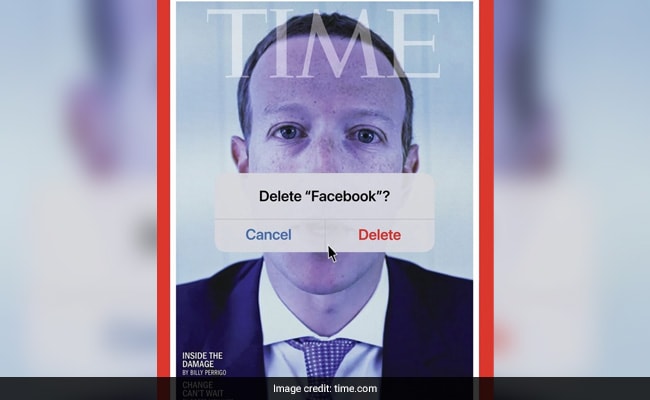TIME magazine featured Mark Zuckerberg on its latest cover.
TIME magazine featured Mark Zuckerberg on its cover in its latest issue amid allegations that Facebook is fueling division, harming children and putting profits ahead of safety.
The cover photo is accompanied by an illustration of a delete phone app icon and a seemingly simple question: “Delete ‘Facebook’? – and two options – “Cancel” or “Delete”.
Whistleblower Frances Haugen, a former product manager on Facebook’s civic disinformation team, explained to U.S. lawmakers this week how the company is pushing for higher profits while being flippant about user safety. She said Facebook has also done too little to prevent its platform from being used by people planning violence.
How Facebook forced an account by shutting down the team that put people before profits https://t.co/xm1uu7SCfl
– TIME TIME) October 8, 2021
The TIME cover story, posted on the magazine’s website, is titled “How Facebook Forced a Calculation By Shutting Down The Team That Put People Before Profits.”
The article speaks extensively about Facebook’s civic integrity team and highlights how the decisions of the social media giant have alienated many of the critical team that fights disinformation and hate. Facebook disbanded the team in December 2020, which ultimately led Frances Haugen to speak out.
“Regardless of Facebook’s future direction, it is clear that discontent was brewing internally. The leak of documents and Haugen’s testimony have already sparked calls for tighter regulation and improved the quality of public debate on the social media influence, â€writes Billy Perrigo, author of the article.
Earlier this week, Mark Zuckerberg hit back at the whistleblower’s claims, saying they are “just not true.”
“The argument that we deliberately distribute content that angers people for profit is deeply illogical,†Zuckerberg wrote in a note to Facebook employees that he later posted on his account.
“I don’t know of any tech company that sets out to create products that make people angry or depressed. The moral, business and product incentives all go in the opposite direction.”







